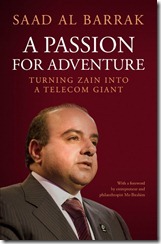Ericsson announced the completion of its acquisition of BelAir Networks, a North American carrier-grade Wi-Fi company. This acquisition gives Ericsson a strong carrier-grade Wi-Fi portfolio, technological expertise, IPR, and established customer contracts and relationships.
The closing follows the announcement on February 21, 2012 that Ericsson had entered into an agreement to acquire 100 per cent of the shares in BelAir Networks.
"We are gaining BelAir Networks’ leading position in carrier-grade Wi-Fi equipment both in terms of installed base and product portfolio. By integrating BelAir Networks’ talented people and these new assets into Ericsson’s mobile infrastructure leadership, we will accelerate the integration of Wi-Fi and cellular technologies and strengthen our heterogeneous network (hetnet) offering," said Johan Wibergh, executive VP and head of business unit Networks, Ericsson.
"We welcome BelAir Networks’ 120 employees to Ericsson. Together we can deliver the industry’s first integrated Wi-Fi cellular offering to Ericsson’s global customer base in 180 countries, to enhance consumers’ mobile broadband experience," continued Wibergh.
The former BelAir Networks’ staff will be integrated into the Ericsson group in business unit Networks over the coming months and will work under the Ericsson brand effective April 2. Ericsson is committed to ongoing evolution of BelAir Networks’ former customer networks and the assurance of a seamless business transition.




